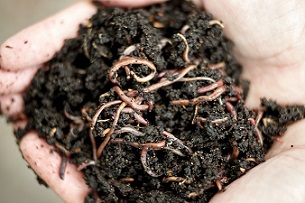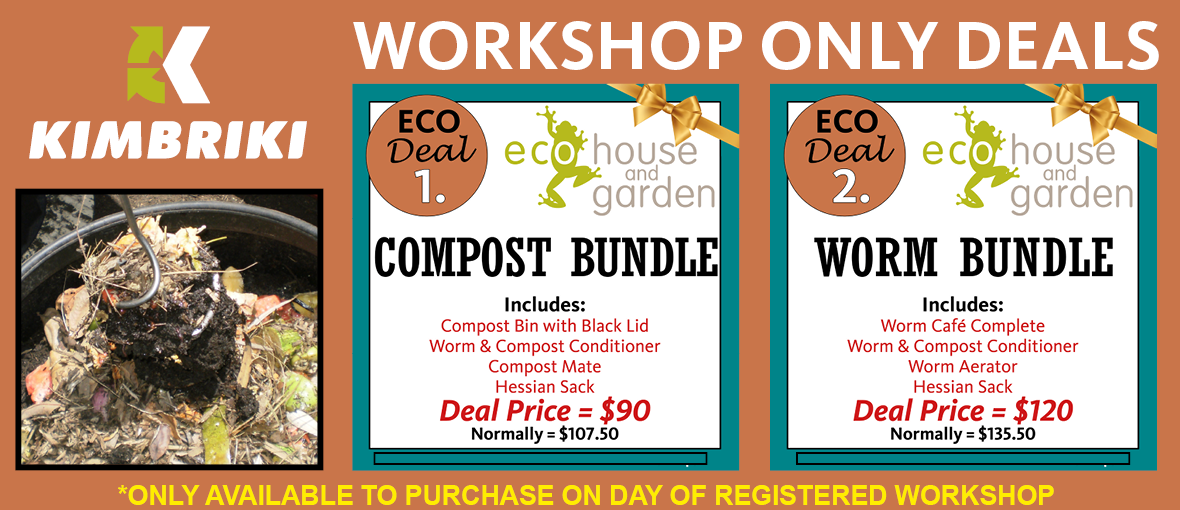
Kimbriki Beginners Composting & Worms Workshop
Everything you could possibly want to know about how to successfully run a compost bin and a worm farm.

Composting and worm farming are great alternatives to disposing of your food waste in the rubbish bin while creating natural fertiliser for your garden. By recycling food scraps in a compost bin or worm farm you can help reduce organic waste disposed in landfill, in turn reducing the production of leachate and greenhouse gases from landfills. Compost and worm ‘castings’ are both ideal natural fertiliser for your garden.
Our Composting and Worms Workshop is great for beginners or those wanting to refresh their skills, and covers the following topics:
-
Why compost or have a worm farm? Learn why food scraps & garden waste must be taken out of our rubbish bins
-
Setting up your compost bin & worm farm
-
What goes into your compost & worm farms?
-
Learn different methods of composting fodd scraps for different settings
-
Maintaining your compost & worm farm
-
How to use compost, worm castings & ‘worm juice’ on your garden
-
The vital role of organic matter & humus in your soil
-
Answers to the most common problems
Date, Time and Venue
Workshop location varies per date. Ticket can only be used at the workshop location for the date booked.
Sessions
SESSIONS
DESCRIPTION
STATUS
Eco Shop Deals for Participants
Kimbriki's Eco House and Garden stocks a range of products to get you started with composting and worm farming. Products can be purchased at the Eco House by appointment or following workshops. When you attend a worm farming or composting workshop, you are eligible to purchase a bundle deal on the day of the workshop. Bundles are a great saving and contain all you need to get started.

Note for Northern Beaches Residents
Northern Beaches residents may be eligible to receive a $90 voucher to put towards purchasing a worm farm or compost bin. Available to residents, one per household, if you have not received a free worm farm or compost bin from Northern Beaches Council before*.
Contact Details


